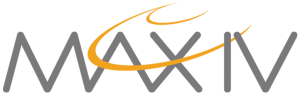
CONNECTING US
Science Symposium on Advances in Sample Environment and Experimental Control
Advances in the brightness of x-ray and neutron sources, and detector technologies are leading to an increasing use of small-angle scattering methods to study nanostructure under non-equilibrium conditions and to study structural change on ever shorter time scales.
In order to take advantage of these new opportunities with scattering instrumentation, there must be associated advances in the sample environment equipment, the interface of that equipment with the instrument and experimental control.
The goal is to bring together sample environment experts, instrument & beamline scientists, users to present and discuss recent advances in the state of the art of sample environment and experimental control for small angle scattering along with associated data analysis methods. This will feed discussion of future opportunities and requirements for upcoming instruments and beamlines.
Some of the topics for discussion are
- Non-equilibrium conditions
- High magnetic fields
- Low temperatures
- Simultaneous measurement techniques
- Control software and experimental integration
- Data Analysis methods
The symposium will produce a report that can be used by ESS and MAX IV as a source of information for planning R&D and investment relevant to sample enviroments in small angle scattering techniques.
Bring your experience and expectations!!
The meeting is jointly funded by ESS and MaxIV and is an ESS Science Symposium

This symposium is organised by ESS, MAX IV and Lund University as a satellite meeting of the 16th International Conference on Small-Angle Scattering, 13 - 18 September, 2015, Berlin. The subject of sample environment for SAS is a topic of common interest for the organisers and for neutron and x-ray facilities and facility users. This joint effort hopes to start a cluster of SE development in Lund to fits in with on-going initiatives across Europe and globally to build a community of SE expertise.
Andrew Jackson (ESS), Ana Labrador (MAX IV), Marc Obiols-Rabasa (Lund University), Tomás Plivelic (MAX IV)



